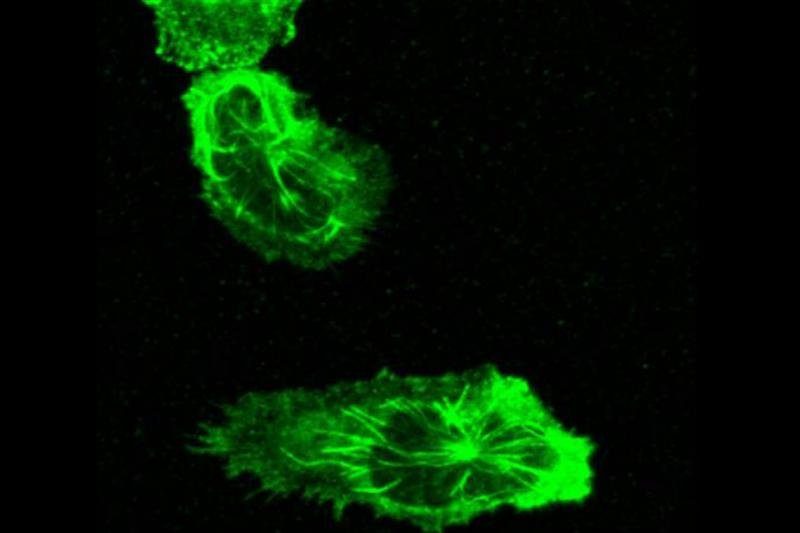October 22, 2020 | Research
U of T alumni researchers discover mechanism linking gum disease to heart disease, other conditions
By Erin Vollick

Three alumni researchers at U of T's Faculty of Dentistry say their work suggests that neutrophils (pictured) released to tackle gum disease could cause the immune system to overreact to other infections, possibly including COVID-19 (image courtesy of Noah Fine)
Researchers at the University of Toronto have found evidence that neutrophil immune cell activity is the missing link connecting periodontal disease with heart disease, cancer and other inflammatory conditions – possibly including COVID-19.
The link between periodontal (gum) disease and other inflammatory conditions such as heart disease and diabetes has long been established, but the mechanism behind the association has, until now, remained a mystery.
Now, a team of scientists and clinicians led by U of T’s Faculty of Dentistry say they’ve found the reason why – and it’s related to the body’s own hyperactive immune response. The findings were recently published in the Journal of Dental Research.
“There are statistically significant correlations between periodontitis and systemic diseases ranging from diabetes to cardiovascular diseases,” says Howard Tenenbaum (DDS 1978, DPer 1982, PhD 1983), a professor at the Faculty of Dentistry and chief dentist at Sinai Health Systems in Toronto who is one of the authors of the study.
“It’s almost as if these white blood cells are in second gear when they should be in first”
To find what links those conditions, the researchers focused on the behaviours of cells primarily activated by gum disease: neutrophils, which are cells of the innate immune system. Through in vivo models, the researchers found that the immune system releases an abundance of these neutrophils to tackle the bacterial infections responsible for periodontitis, more commonly known as gum disease.

Activated to fight an oral infection, a systemic effect was noted: Once periodontal inflammation was present, an overabundance of neutrophils circulated that are primed for attack. The hyper-vigilant immune system then responds with an excess of force to any secondary infection.
“It’s almost as if these white blood cells are in second gear when they should be in first,” says Michael Glogauer (DDS 1993, DPer 1999, PhD 1999), professor at the Faculty of Dentistry and dentist-in-chief at the University Health Network who is the study’s senior author.
That’s when the body becomes susceptible to damage from secondary inflammatory conditions. With the immune system already primed by the neutrophils, a secondary event causes those immune cells to destroy affected tissues and organs.
“The [neutrophils] are much more likely to release cytokines much more quickly, leading to negative outcomes,” says Glogauer, who is also head of dental oncology at Toronto’s Princess Margaret Cancer Centre.
Produced initially in in vivo models, the findings were confirmed through a controlled clinical experiment.
“There is evidence out there that patients with periodontal disease may be much more likely to have negative outcomes with COVID-19”
The study’s findings underscore the importance of oral health as a vital indicator of potential complications for other inflammatory conditions, as well as disease model outcomes.
“We believe this is the mechanism by which oral hygiene can impact vulnerability to unrelated secondary health challenges,” says lead author Noah Fine (PhD 2012), a post-doctoral researcher at the Faculty of Dentistry. “Neutrophil (immune) priming throughout the body can connect these seemingly distinct conditions.”
The study also may have important ramifications for COVID-19, another inflammatory diesease.
“There is evidence out there that patients with periodontal disease may be much more likely to have negative outcomes with COVID-19,” says Glogauer, adding the recent study could provide some clues as to why.
“Neutrophils are the cells that are at prime risk of causing cytokine storms. That’s the exact cell we show is primed with people with periodontal disease.”
The researchers received support from the Canadian Institutes of Health Research.